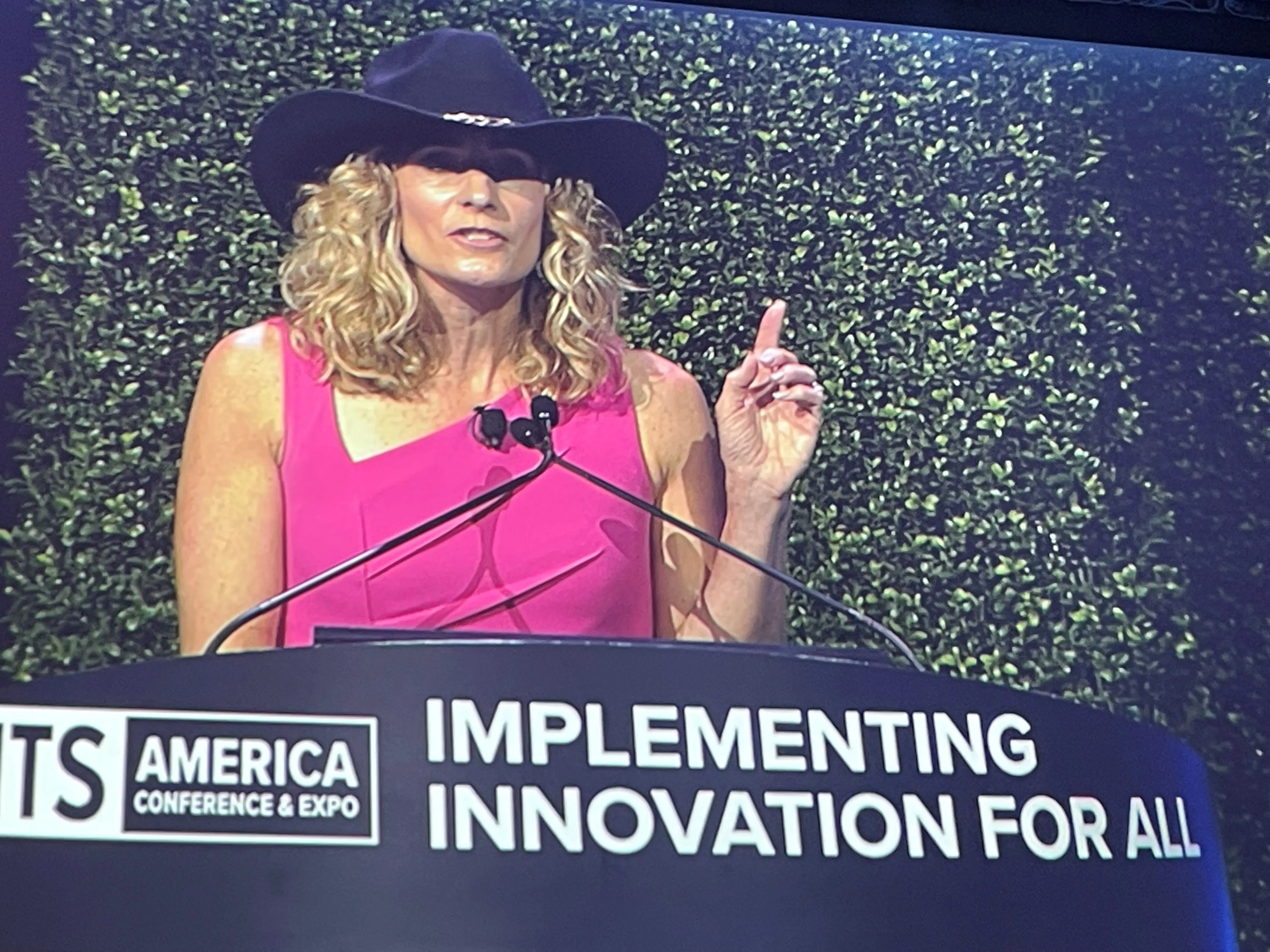Arousing call from Capitol Hill to the ITS industry was among the highlights of Day 2 at the ITS America Annual Meeting in Washington, DC. In a keynote speech, congresswoman Eleanor Holmes Norton (D-DC) said: “So, my friends, your sector has come to the forefront of what we need to be doing in transport and infrastructure today.”
She urged delegates to visit members of the House of Representatives to talk about new mobility solutions. “When it comes to transport, Congress could use some intelligence!” she joked.
Holmes Norton, a member of the Congress Committee for Transportation and Infrastructure, talked about the importance of the new Transportation Bill which is due in 2020. “These bills are bipartisan,” she pointed out. “There are no Republican roads and Democratic highways.”
But she warned: “This is one bill you can’t write without money.”
Concepts such as Mobility on Demand, microtransit and the importance of the 5.9GHz band “are straightforward issues to the ITS community”. However, Holmes Norton added, “too many members of Congress see these as issues of the future. She is convinced that something radical is required: “Nothing less than a re-envisioning of surface transportation is necessary when we write this new bill.”
She says that the US is “woefully behind” when it comes to funding existing infrastructure – in fact, the American Society of Engineers predicts a deficit of $2 trillion over the next decade. Issues such as climate change must also be at the centre of future transport planning, she concluded.
US congresswoman: ‘We must re-envision transportation’
Arousing call from Capitol Hill to the ITS industry was among the highlights of Day 2 at the ITS America Annual Meeting in Washington, DC. In a keynote speech, congresswoman Eleanor Holmes Norton (D-DC) said: “So, my friends, your sector has come to the forefront of what we need to be doing in transport and infrastructure today.”
She urged delegates to visit members of the House of Representatives to talk about new mobility solutions. “When it comes to transport, Congress could use some intelligence!” sh
June 7, 2019
Read time: 2 mins
Related Content











